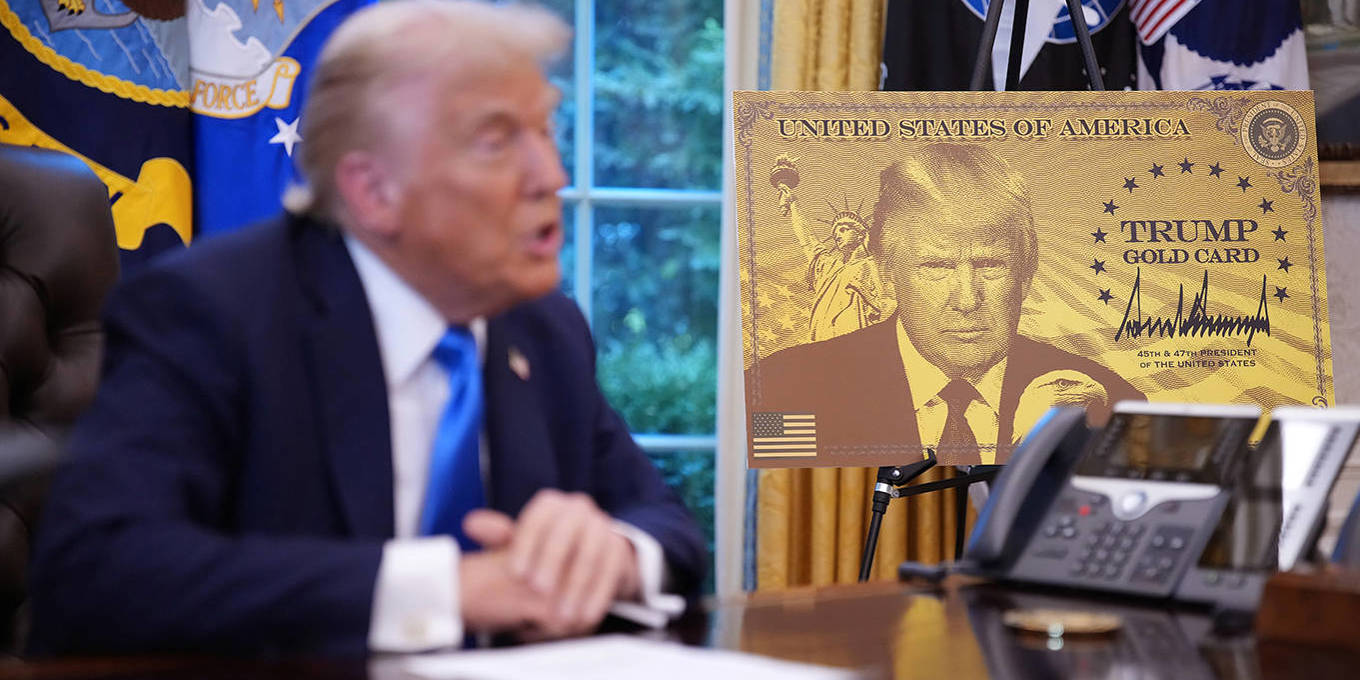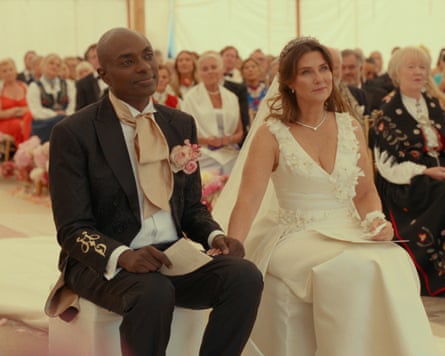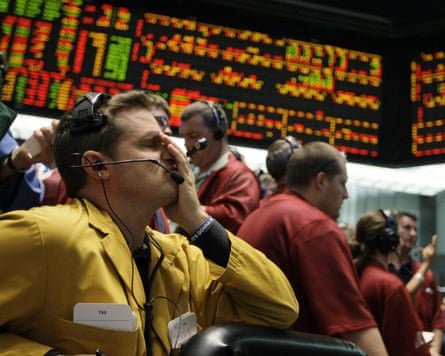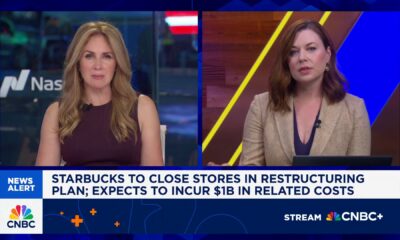Opinion
When Governments Put a Price on Everything

Read more on post.
FRANKFURT – US President Donald Trump recently announced that professional work visas (H-1Bs) for the United States will now cost sponsoring institutions $100,000. This is not a fee; it is the price that any company or university that wants to hire a foreigner must pay. Visas have become transactions, and so, too, has naturalization: the White House is selling “Trump gold cards” that grant a quick path to permanent residency, and eventual citizenship, for $1 million.
Opinion
Norway’s king and queen faced a serious accusation on Netflix – here’s why Norwegians rushed to defend them | Shazia Majid

Read more on post.
When Netflix released the documentary Rebel Royals: An Unlikely Love Story last week, the world got another glimpse of the unconventional romance between Princess Märtha Louise of Norway and her American husband, Durek Verrett – a self-styled shaman and spiritual healer to Hollywood celebrities. The pairing has been controversial in Norway: Märtha Louise stepped down from her official duties before marrying Verrett, the couple have a history of promoting pseudoscientific beliefs, and Verrett – who is black – has long been the target of racist abuse. It is on this last point that Verrett used the programme to deliver a stinging critique of his in-laws, King Harald and Queen Sonja.
“Most people who are white are trained to listen to white people and not to people of colour,” he says in the film. “Her father, her mom, her brother … they didn’t even know what racism was. They would look at me like I was crazy when I would say there’s racism.”
It makes for dramatic television. But the portrayal of the king and queen as naive, out of touch and even prejudiced is not just misleading, it distorts what they represent in Norway. In fact, for families like mine, the royal couple became a rare unifying force in a society still learning what diversity meant.
International viewers might see this as an echo of Britain’s Windsors, glamorous, scandal-ridden, polarising figures who dominate headlines – whereas the Norwegian royals may come across as quieter, less visible, and largely uncontroversial. In reality, Harald and Sonja have been moral anchors in a country that only began receiving significant immigration from Asia and Africa in the 1970s. They wield no political power, yet their authority carries weight. For many Norwegians with immigrant backgrounds – myself included – the royal couple have been among the few who have consistently spoken of us as belonging.
That is why Verrett’s accusations have provoked fury and widespread rebuttals. This groundswell of support was not engineered by the palace: citizens spontaneously rallied behind their king and queen.

Some of the loudest voices have come from minority communities. On a prime-time debate show days after the Netflix documentary premiered, queer activists and representatives from religious groups, disabled communities, anti-racist networks and women’s organisations lined up to testify to the couple’s inclusivity.
The examples are not hard to find. In 2016 the king declared: “Norwegians have come from Afghanistan, Pakistan and Poland, Sweden, Somalia and Syria.” For tens of thousands of us, that single line cut through the online hate telling us we would never be “real Norwegians”. Inclusion and diversity have not been symbolic gestures, but the king’s life’s work. In his New Year’s Eve speech in 2007 the king addressed racism directly: “We are constantly reminded that humanity and mutual respect cannot be taken for granted. Xenophobia, everyday racism and violence are part of the news picture. Tolerance can be enshrined in law – but prejudice against those who think differently has its roots in the human mind. It is there that the battle must be won.”
Sonja, who was not born a royal and fought for nine years to be allowed to marry Harald, has channelled her own experience of exclusion into decades of advocacy for women and minorities. In a small, homogeneous country, these gestures have mattered.
None of this means Norway is free of racism. Its recent politics underscores the tension: in the last election, an anti-immigration party made surprising gains, indicating how fragile social cohesion feels in a time of heightened polarisation. Verrett’s personal experiences of prejudice deserve acknowledgment. But to brand the monarchs as ignorant or racist does more harm than good. If every criticism is recast as racism, the term itself is emptied of power – leaving those most affected less protected.
Verrett’s own controversies also matter. In Norway, he has been criticised less for his skin colour than for his actions: selling amulets he claimed could protect against Covid, or suggesting childhood cancer is caused by unhappiness. His self-promotion jars with Nordic norms of modesty. Conflating cultural disapproval with racial bias only deepens mistrust.
The lesson is larger than Norway. Public figures invoking racism carry responsibility: their words can clarify, but they can also obscure. If we want the fight against discrimination to succeed, we must name real prejudice when we see it – and also recognise genuine allies, even when imperfect.
For all their privilege, King Harald and Queen Sonja have opened doors, literally and figuratively, to those once shut out. They deserve better than caricature. And Norway – like every democracy – deserves a conversation about race that confronts hard truths without collapsing into distortion.
-
Shazia Majid is a columnist at the Norwegian newspaper VG
-
Do you have an opinion on the issues raised in this article? If you would like to submit a response of up to 300 words by email to be considered for publication in our letters section, please click here.
Opinion
The next big financial crisis may be brewing. Warning signs are already there | Larry Elliott

Read more on post.
US job creation has stalled and, despite the curbs on migration, unemployment is rising. Tariffs are pushing up the cost of imports. And Donald Trump is at war with the governor of his own central bank and wants him out.
But traders on Wall Street are not bothered by the fact that inflation is above the target or that growth is slowing. Share prices are testing new record levels on an almost daily basis. Jerome Powell, the man Trump wants to be rid of, says stocks are “fairly highly valued”, which is an understatement if ever there was one. By historical standards, stocks are extremely highly valued. There is trouble – perhaps big trouble – ahead.
Recessions happen rarely and the same goes for financial crashes. Both are predicted more often than they materialise. Leaving to one side the exceptional circumstances of the 2020 pandemic, it has been 17 years since there was a prolonged fall in share prices. Memories of the slump that followed the collapse of Lehman Brothers 17 years ago this month have dimmed. Traders in their 20s and 30s have little or no experience of what a genuine financial market panic feels like.
That’s the first warning sign. The longer the period between crises, the greater the complacency, the sense that the good times will go on for ever. Those who note that all previous booms have ended in painful busts are ignored. The old lie – it’s different this time – is trotted out.
The belief that the party will continue has pushed share prices ever-higher in New York and London, even though the reasons for the optimism are tenuous. In the UK, the economy is barely growing while inflation is running at almost double the Bank of England’s 2% target. As was the case last year, constant speculation about tax rises to be announced in the budget is hitting consumer and business confidence.
The record-breaking run of share prices on Wall Street is the result of a bet that artificial intelligence will raise the economy’s growth rate. That may happen, but it will be years before the impact is felt. The same was said of the IT boom that propelled share prices to dizzying heights in the late 1990s. It wasn’t different that time either.
No two market crashes are alike. The current state of affairs feels different from 2008, when the crash was caused by the overexposure of banks to the US housing market, and turbocharged by the widespread use of new financial instruments that were supposed to reduce risk but did the opposite. If there are parallels, they are with the recession-triggered stock market setbacks of the 1970s and early 1980s, when downturns were deliberately engineered to combat high inflation.
All of which makes the power struggle between Trump and Powell pivotal. Despite what the president might say, the performance of the US economy is mediocre at best, although the weaknesses have been disguised by the fact that the better-off have been doing just fine. The top 10% of earners account for almost half of consumer spending – the highest level since the late 1980s.

The bias towards the rich is nothing new but creates its own risks. Exposure to the stock market has never been higher, with 30% of the wealth of Americans accounted for by shares. Since share ownership is concentrated among the better-off, the US economy is relying on the Wall Street boom continuing, and for the rich to carry on spending their gains.
Americans trying to get by on low and middle incomes are not so fortunate. Since the end of the pandemic, they have seen their real incomes pretty much flatline. As one Wall Street analyst, Mark Zandi, put it, the fate of the US economy lies in the hands of the well-to-do. “As long as they keep spending, the economy should avoid recession, but if they turn more cautious, for whatever reason, the economy has a big problem.”
One obvious reason for the rich to turn more cautious would be a fall in share prices. If that happened, their wealth would take a hit and they would spend less. Growth would slow. Add in the negative impact of tariffs and there would be a genuine threat of recession next year. In those circumstances, Powell and his colleagues at the Federal Reserve would be expected to support share prices by cutting interest rates. Indeed, it is Wall Street’s certainty that the US central bank will bow to Trump’s pressure to do so that is preventing share prices from falling.
after newsletter promotion
Since the 1970s, central banks have prized low inflation over full employment, which has been good for owners of capital but not so good for labour. As Dario Perkins of the research firm TS Lombard puts it, just as trade unions were the custodians of full employment immediately after the second world war, so central banks were the custodians of neoliberalism. While ostensibly independent, they made sure that capital triumphed in the fight against labour – and carried on winning. In both the global financial crisis of 2008 and the pandemic, central banks took aggressive action to put a floor under share prices.
So Powell may well deliver, but he may not. The Fed has twin targets: to keep inflation at 2% over time and to support employment. Inflation is running at just under 3% so there is now a choice: keep interest rates higher than the markets expect in order to tame inflation, or ditch the inflation target to justify interest rate cuts.
Either way, the prospects are not good. If the Fed resists the pressure for cheaper borrowing, it increases the chances of the US economy falling into recession. If it bows to the pressure, it will keep the stock market bubble inflated – for now at least – but at the risk of higher inflation. This could well trigger a backlash from the bond markets, which in effect set the interest rates for mortgages and servicing the US national debt, currently 124% of GDP.
It is always easier to be wise after the event and identify the causes of stock market crashes with the benefit of hindsight. There should be no such problem this time. In the months to come, we shall see whether the bull market can survive the president’s attempt to set US interest rates from the White House. Wall Street seems untroubled by this. It shouldn’t be.
-
Larry Elliott is a Guardian columnist
Opinion
Claudia Sheinbaum’s Uneven First Year

Read more on post.
MEXICO CITY – On October 1, Mexico’s first woman president, Claudia Sheinbaum, will begin her second year in office. While not necessarily coming through with flying colors, Sheinbaum has persevered in the face of complex domestic and foreign challenges – a victory in itself. And her accomplishments are nothing to sneer at: she has maintained a high approval rating, received glowing praise from the global press, overseen an apparent drop in homicides, and remained on relatively good terms with the ever-capricious US President Donald Trump.
-
Culture2 days ago
Taylor Swift’s new cinema outing generates more than €12million in just 24 hours
-
Environment1 week ago
Chimps drinking a lager a day in ripe fruit, study finds
-
Politics2 days ago
European Parliament snubs Orbán with vote to shield Italian MEP from Hungarian arrest
-
Culture2 weeks ago
Life, loss, fame & family – the IFI Documentary Festival in focus
-
Health3 days ago
EU renews support for WHO’s Universal Health Coverage Partnership
-
Culture2 days ago
Twilight at 20: the many afterlives of Stephenie Meyer’s vampires
-
Environment5 days ago
Key oceans treaty crosses threshold to come into force
-
Culture2 months ago
Fatal, flashy and indecent – the movies of Adrian Lyne revisited













































